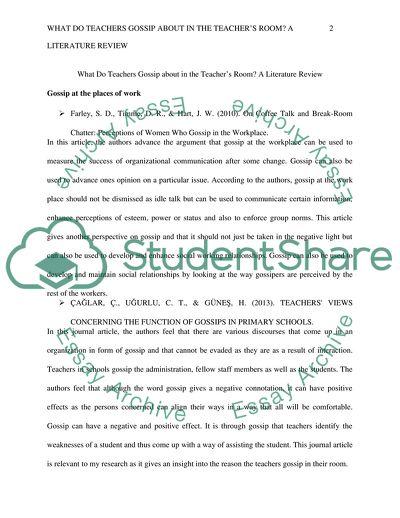Cite this document
(What Do Teachers Gossip about in the Teachers Room Annotated Bibliography Example | Topics and Well Written Essays - 2750 words, n.d.)
What Do Teachers Gossip about in the Teachers Room Annotated Bibliography Example | Topics and Well Written Essays - 2750 words. https://studentshare.org/journalism-communication/1851131-what-do-teachers-gossip-about-in-the-teachers-room
What Do Teachers Gossip about in the Teachers Room Annotated Bibliography Example | Topics and Well Written Essays - 2750 words. https://studentshare.org/journalism-communication/1851131-what-do-teachers-gossip-about-in-the-teachers-room
(What Do Teachers Gossip about in the Teachers Room Annotated Bibliography Example | Topics and Well Written Essays - 2750 Words)
What Do Teachers Gossip about in the Teachers Room Annotated Bibliography Example | Topics and Well Written Essays - 2750 Words. https://studentshare.org/journalism-communication/1851131-what-do-teachers-gossip-about-in-the-teachers-room.
What Do Teachers Gossip about in the Teachers Room Annotated Bibliography Example | Topics and Well Written Essays - 2750 Words. https://studentshare.org/journalism-communication/1851131-what-do-teachers-gossip-about-in-the-teachers-room.
“What Do Teachers Gossip about in the Teachers Room Annotated Bibliography Example | Topics and Well Written Essays - 2750 Words”. https://studentshare.org/journalism-communication/1851131-what-do-teachers-gossip-about-in-the-teachers-room.


